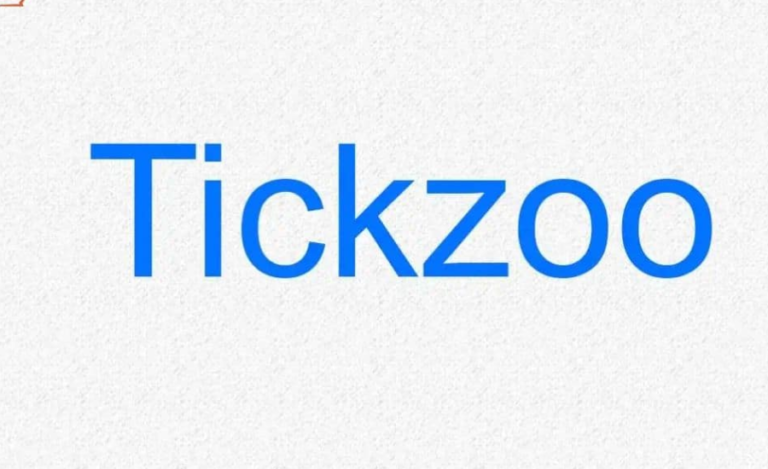Enhancing Employee Motivation by Key Coaching Competencies
In today’s organizations, employee motivation is vital to accomplishing organizational objectives and maintaining a good atmosphere in the workplace. Generally, motivated employees tend to be more engaged and productive, showing greater commitment to their job responsibilities, which impacts overall job performance and satisfaction. Key competencies of coaching have constructively motivated employees through guidance, support, and career development opportunities. The following article explores how the use of key coaching competencies can effectively enhance employee motivation for organizational success.
Importance of Employee Motivation
Employee motivation is the force that drives individuals to strive and work toward the realization of their goals and give their best performance. Motivated employees are more creative, enthusiastic, and dedicated; thus, they contribute more to the work environment and make it productive and innovative. Key elements in employee motivation include:
Work Satisfaction: Those who think that their job is significant and they perform their role will have a higher chance of being motivated. Work itself, recognition, and growth are factors affecting job satisfaction.
Commitment to Goals: The motivated individual is committed to the achievement of personal and organizational objectives. Motivated individuals set high standards for themselves and work hard to achieve the standards.
Engagement: The engaged employees are personally involved in their job and have a high association with the organizational goals. Engagement is very closely linked with motivation and leads to better performance and greater retention.
Performance and Productivity: Motivation is a significant determinant of performance and productivity. The motivated employee is more likely to put in extra effort, show initiative, and produce quality work.
Basic Coaching Competencies for Enhancing Employee Motivation
Coaching serves as a powerful tool, which motivates employees toward better performance. Coaching would be a process of giving supportive feedback and developmental opportunities in order to help people perform at their best. Here are some core competencies in coaching that will definitely raise motivational levels in employees:
Active Listening
Active listening is a basic coaching competence since it involves paying attention to and understanding what the employee is communicating. Attention involves note-taking, asking questions for clarification, and giving feedback. With active listening, the coaches express empathy and appreciate that the opinions and issues raised by the employees are valuable. This engenders confidence and aids in the discovery of the underlying causes of motivation.
Effective Questioning
Questioning-the art of asking the right questions—is one approach that helps uncover needs, wants, and barriers with employees. Good questioning encourages reflection about what is happening, establishes goals, and finds solutions. Open-ended questions, such as “What do you enjoy most about your job?” or “How can I best support you in achieving your goals?” foster self-awareness and lead to rich conversations that encourage motivation.
Setting Goals
Setting realistic and achievable goals is one of the key motivators for employees. Coaches should work with employees to develop specific, measurable, attainable, relevant, and time-bound goals known as SMART. Goal setting provides direction, focus, and a sense of purpose, which are critical motivators. Progress review and celebration of achievements will further motivate and sustain commitment.
Constructive Feedback
Constructive feedback is one of the key coaching competencies that help an employee understand his strengths and weaknesses. Feedback always needs to be specific, actionable, and expressed within supportive relations. The coaches can help in improving the performance of the employee and motivating him by providing feedback on success and further improvement.
Building Self-Esteem
Self-confidence is the driving force behind motivation in employees. Coaches should give a free hand toward the building of employees’ confidence by acknowledging their achievements and actively supporting them in acquiring particular skills. Coaches help employees to believe in themselves and accept challenges while helping them to surmount these challenges. In this way, coaches can increase the confidence and motivation of the employees.
Facilitating Self-Reflection
It is a very effective mechanism for personal and professional growth and development. Coaches should encourage workers to reflect on their experiences, achievements, and difficulties. With reflection, employees will learn about themselves more when it comes to motivation, strengths, and weaknesses. Through a reflective attitude that coaches instill in them, employees will have a deeper understanding of their goals and the things that motivate them.
Creating Development and Learning
Opportunities for growth and development are significant in sustaining motivation. Coaches should assist employees in pointing out skill gaps and career goals. Providing training, mentorship, and resources toward improving skills shows investment in their future and contributes to sustaining motivation because one’s career goals are being satisfied.
Establish a Positive Relationship
A positive coaching relationship should be built to motivate employees. The coaches are expected to establish a supportive and non-judgmental setting where employees can be free to share their problems and goals. As the coaches build trust and rapport with them, they feel valued and motivated to participate in the process of coaching effectively.
Integrate Coaching Skills with Techniques for Motivation
In order to make the coaching process very effective in motivating employees, there is a need to integrate coaching skills with broad motivation techniques. Coaching and motivational goals would be integrated accordingly:
Align Individual Goals with Organizational Aims
It is also crucial to ensure that the personal goals rhyme with the overall objective of the company. Coaches and employees should be working in setting up goals that will enable the employee to accomplish and at the same time work for the success of the company. Once this achieved the employee will be able to appreciate their relevance or importance within the company and at the same time this boost their motivation.
Personalize Coaching Methods
Recognize that every employee is different, and so their reaction or response to coaching interventions will also be unique. Adapt coaching approaches to the individual’s needs, preferences, and motivational drivers. By tailoring coaching strategies, you will be in a better position to address specific challenges to ensure that the coaching experience is not only more effective but also motivating.
Work-Life Integration
Assist employees in achieving a better balance between professional and personal life. Coaching should extend to cover workload management, the setting of boundaries, and time for personal well-being. Balance in approach is of importance for sustaining employee drive by reducing the risk of burnout.
Encourage Team Collaboration
Apply coaching strategies that will stimulate cooperation and teamwork. Many enthusiastic employees do well in an environment where they feel to some degree a part of their colleagues and part of a team that is supportive. Coaches are supposed to stimulate team-building activities and encourage collaboration.
Analyze and Flexibilize Coaching Techniques
Evaluate continuously the coaching techniques and perform the necessary adjustments for performance and effectiveness. In this way, through gathering the feedback of employees about coaching and observing their progress, coaching will be able to polish their methodologies, keeping coaching and motivational objectives at hand.
In brief, the development of employee motivation through essential coaching skills acts as a potent tool for enhancing job performance and building up a healthy atmosphere in the work environment. Various techniques might be used in this sense, including active listening, effective questioning, goal setting, and constructive feedback; leaders can therefore impact employee motivation and commitment at deep levels. Consequently, linking these competencies within coaching to broader strategies of motivating employees will make certain that employees feel supported and valued, as well as motivated to execute their goals. It means that committing to coaching not only raises individual performance but also makes much difference to the success of the organization as a whole and fosters a highly enthusiastic work team.
Keep an eye for more news & updates on Tech Trand!






